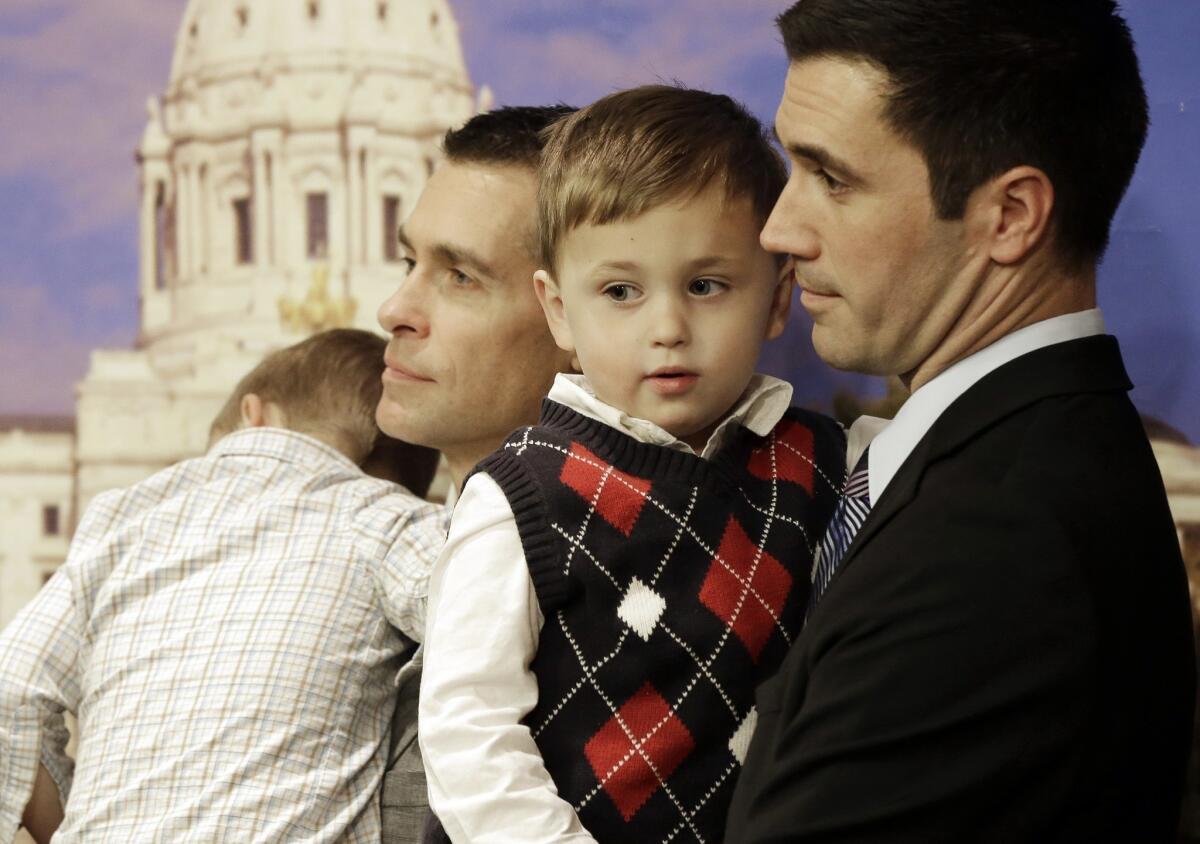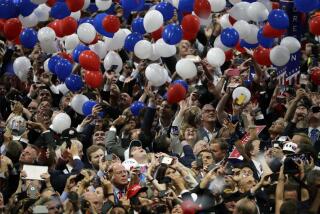Opposition to same-sex marriage increasingly isolated, pollsters say

With the rapid shift in public opinion toward same-sex marriage, opposition to changing marriage laws increasingly has become limited to a few slices of the electorate, according to an analysis of polling data by leading Republican and Democratic pollsters.
The two major divides are a generational and cultural split, according to the analysis, which looked at data from the November exit polls.
Among people who voted in the last election who are older than 65, opponents of legalizing same-sex marriage outnumber supporters 58% to 37%. But those older voters made up only about one-sixth of the electorate. Among the large majority younger than 65, a majority now supports same-sex marriage, 52% to 44%.
TIMELINE: Gay marriage through the years
On the cultural side, people who identify themselves as white, evangelical Christians overwhelmingly oppose same-sex marriage – 73% to 24%. They make up just over a quarter of the electorate. Among the other three-quarters of voters, legalizing same-sex marriage has majority support, 58% to 36%.
Opposition “is concentrated in a very small slice of the electorate,” said Joel Benenson, President Obama’s chief pollster, who analyzed the data along with Jan van Lohuizen, who was the chief pollster for George W. Bush. The two did the analysis for Freedom to Marry, a leading advocacy group for same-sex marriage.
The shift in support has become “an irreversible trend that has already hit a tipping point,” Benenson added.
Much of the change is driven by younger voters coming into the electorate, but a significant number of voters – about 1 in 8 – say in polls that they have changed their minds on the subject of marriage in the last five years, said van Lohuizen. Almost all of those people say their stance has changed in the direction of accepting same-sex marriage, he added.
Although the demographic groups that oppose same-sex marriage are a minority nationwide, they make up a much larger share of the electorate in some states. To look at a couple of the 2012 battleground states, for example, white, evangelical Christians made up 35% of the vote in North Carolina, but 24% in Wisconsin. The highest percentages of white evangelicals are typically in Southern states.
That variation suggests that same-sex marriage could quickly become the law in most coastal states and other states with large, urban populations but that change will come more slowly in more rural states, particularly in the South.
Follow Politics Now on Twitter and Facebook
More to Read
Get the L.A. Times Politics newsletter
Deeply reported insights into legislation, politics and policy from Sacramento, Washington and beyond. In your inbox three times per week.
You may occasionally receive promotional content from the Los Angeles Times.











